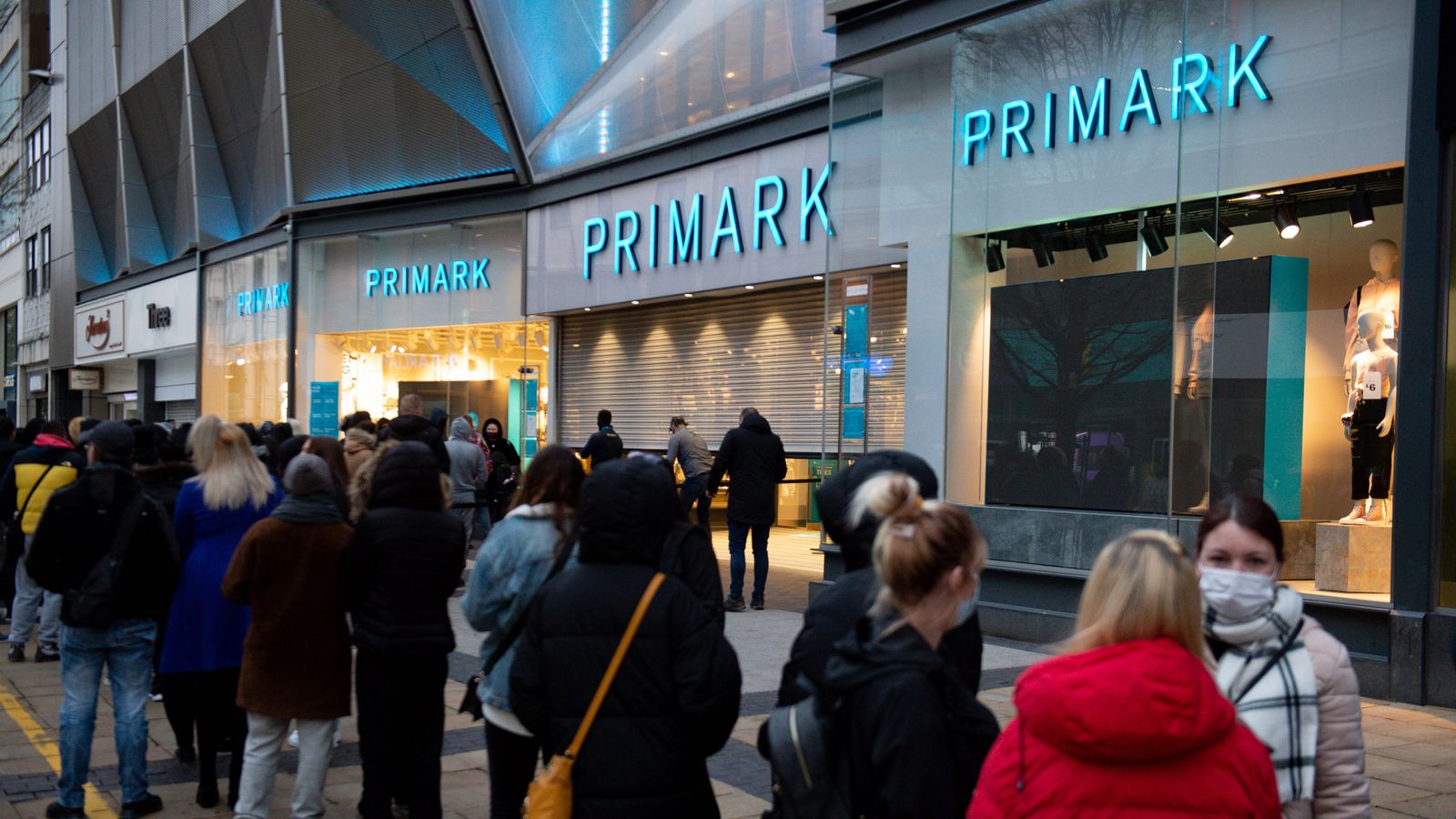Primark has revealed it suffered a “pingdemic” sales slump over the summer – and is now facing supply chain delays for its autumn and winter stock.
The cut-price fashion retailer’s UK like-for-like sales were down by 24% compared to last year over a four-week period from mid-June though they have partly recovered since self-isolation rules were eased.
Primark’s disclosure on the impact of the pingdemic chimes with official figures showing a sharp decline in retail sales in July and GDP data suggesting Britain’s wider economic recovery almost ground to a halt.
They were set out as part of a trading update from the retailer’s owner Associated British Foods (ABF) which also showed how supply chain difficulties were affecting it.
It said Primark was “experiencing some delays to the handover of some autumn/winter inventory caused by port and container freight disruptions”.
However ABF finance director John Bason told Reuters news agency the problem was “about delays rather than cancellations”, adding: “All stores got this early autumn stock, we’re fully stocked and ready for the season, there will be no shortages.”
Shares fell 4% in early trading.
Primark’s woes over the summer followed an earlier bounce after the end of lockdown when it said “customers came back to our stores with enthusiasm and sales reflected some pent-up demand with very high basket sizes”.
Sales for the third quarter to 19 June were ahead by 3% year-on-year, but for the fourth quarter to 18 September they are expected to be down by 17%.
“In the UK our sales were affected by the rapid and significant increase in late June and early July in the number of people required to self-isolate following contact tracing alerts – the ‘pingdemic’,” ABF said.
The group also pointed to high street footfall being “impacted by the caution displayed by many consumers at that time”, with sales down by 24% in the first four weeks of the first quarter.
After self-isolation rules were eased in early August there was an improvement but sales were still down in the last four weeks.
ABF said it expected underlying profits for the year to 18 September – stripping out the impact of its previously announced decision to repay furlough cash – to be ahead of the previous year as Primark’s profit margin remained “strong”.
That was partly helped by the fact that it has reduced the number of Primark store staff “through natural attrition”.
The company also said demand for “comfort” fashions such as leggings and cycle shorts that proved popular during the pandemic continued during the period and that sales of its new season ranges had started well.
Richard Hunter, head of markets at interactive investor, said: “The ‘pingdemic’ came at a bad time for Primark, throttling some of the recovery it had been seeing and holding back sales in the fourth quarter.
“However, when access to the stores was unfettered, the picture was extremely bright.”


